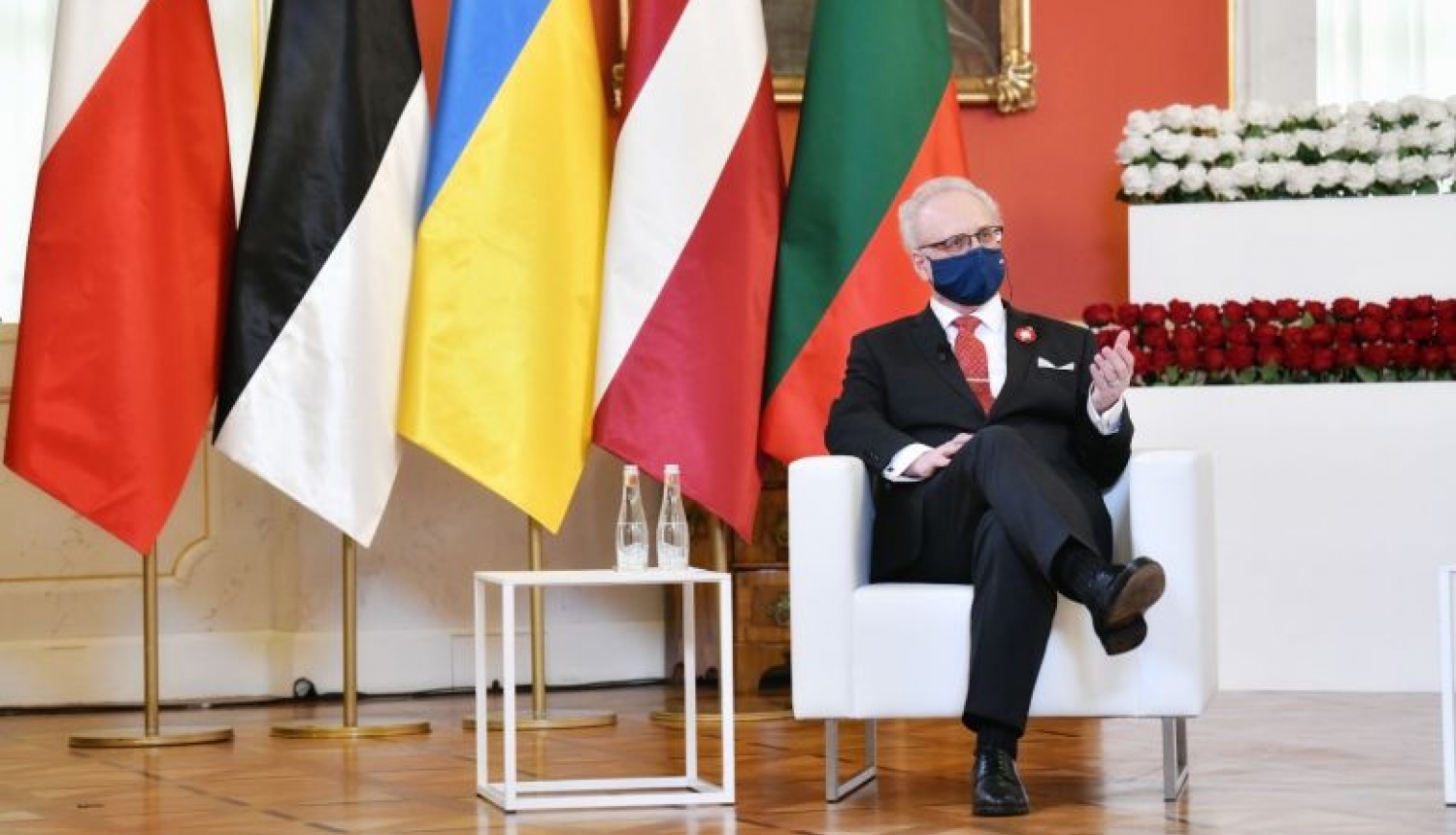Honouring the adoption of the first constitution in Europe 230 years ago, President of Latvia Egils Levits, President of Estonia Kersti Kaljulaid, President of Lithuania Gitanas Nausėda, President of Ukraine Volodymyr Zelenskyy and President of Poland Andrzej Sebastian Duda signed a joint declaration in a ceremony held at the Royal Castle in Warsaw, Poland.
In his address to the participants of the ceremony, President of Latvia Egils Levits stressed that ‘this is a wonderful opportunity for all five countries represented here today to revisit the roots of our constitutionalism. Constitution of 3 May 1791, which was the first modern constitution in Europe, laid the foundation for all our national constitutional systems. It is a lasting contribution of our region to national rule of law systems in Europe’. Although due to external and internal factors constitution did not exist for long, ‘it had a lasting symbolic effect, which also led to restoration of Polish and Lithuanian states. It is, therefore, vital to remember these roots and rely on them’, said Egils Levits.
President of Latvia stressed: ‘Europe does not have a centre or periphery. All European states are equal. We are a union of equal nation states, comprised of big and small nations and states. Europe is really unique – it is not a state, nor is it an international organisation. It unites different states that share the same fundamental values and have their own distinct features. That is the strength of Europe. We do not want to build a single state or an international organisation, like the United Nations. We want to merge the common and distinguishing traits. As far as achieving it is concerned, I think basic treaties adopted by Europe are a good reflection of how that should be done. They provide a healthy balance between the interests of big and small states, different regions. I believe that these treaties are effective’.
According to Egils Levits, ‘there are areas which need certain improvements, for example, healthcare. Our foreign policy should also be more consistent and coordinated. We are not alone in this world, we need to take the others into account, as well. To achieve that, we need stronger foreign policy, which respects the interests of all European nations’.
President Levits also pointed out that Europe and its political philosophy is based on two tiers of values: ‘There are fundamental values shared by all, like democracy, rule of law, freedom, and then there are different ways how these values are manifested and unique world views that each country has based on its national heritage, culture, language and experience. We have the right to have our own beliefs. That is how democracy, rule of law and solidarity works’.
Speaking about the key issues for the future of Europe, Egils Levits also referred to specific projects. He emphasised the strategic role of European Recovery and Resilience Facility: ‘We have an opportunity to make smart investments in a way which allows us to make a quality leap in digital field, green transition and reduction of social inequality in the next 5-10 years.’
President Levits also underlined that all five countries should actively engage in the forthcoming conference on the future of Europe to achieve tangible and meaningful results, which would contribute to stronger Europe and common values: ‘We are sovereign countries that have decided to sacrifice some of their sovereignty for the sake of common good. We are democratic countries, which rely on democratic values and respect for the rule of law. On the other hand, each European Union (EU) member state has its unique national identity, which is also an important quality and should be held in high regard by the European Union.’
Egils Levits urged to not lose the focus on the events in Ukraine and Belarus: ‘Ukraine is also part of the constitutional system, which we celebrate today. Ukrainian people support the same values as us, the member states of EU and NATO. It is our shared responsibility to lend our helping hand and show our solidarity with people of Ukraine, and the people of Belarus who are currently fighting for these values. We need to help them to make ourselves credible, i.e., show that we actually support these values, that they are not just on paper.’




